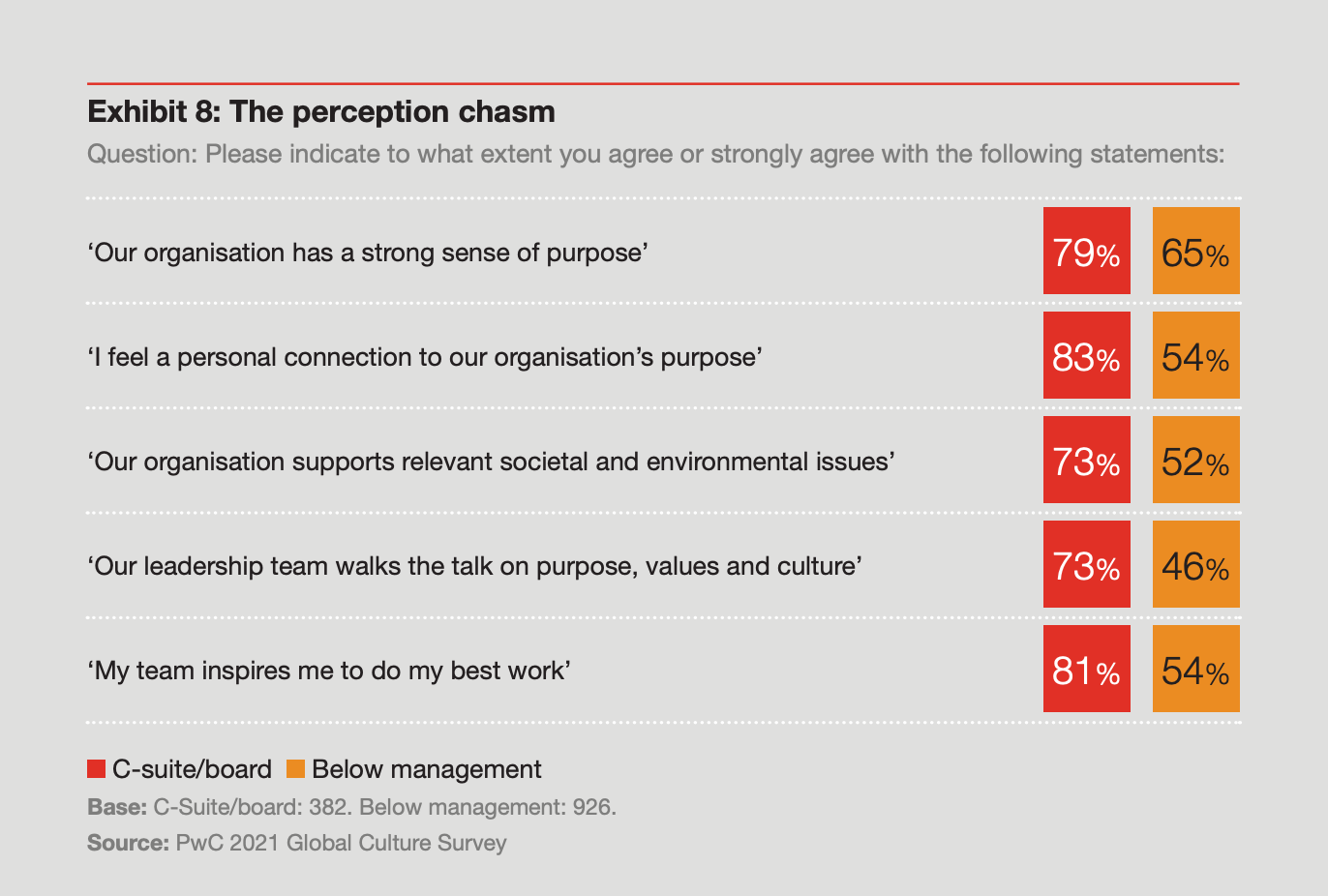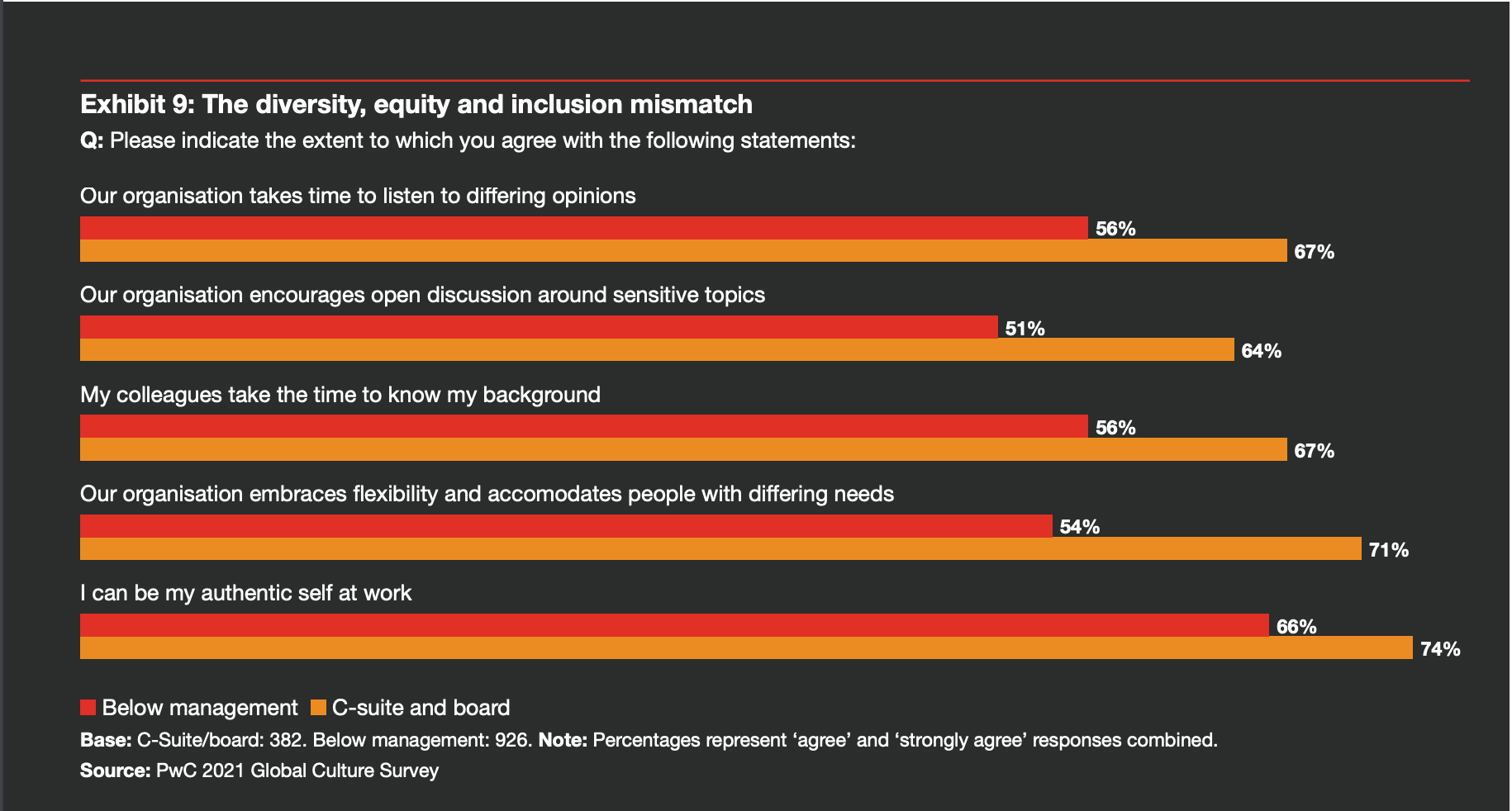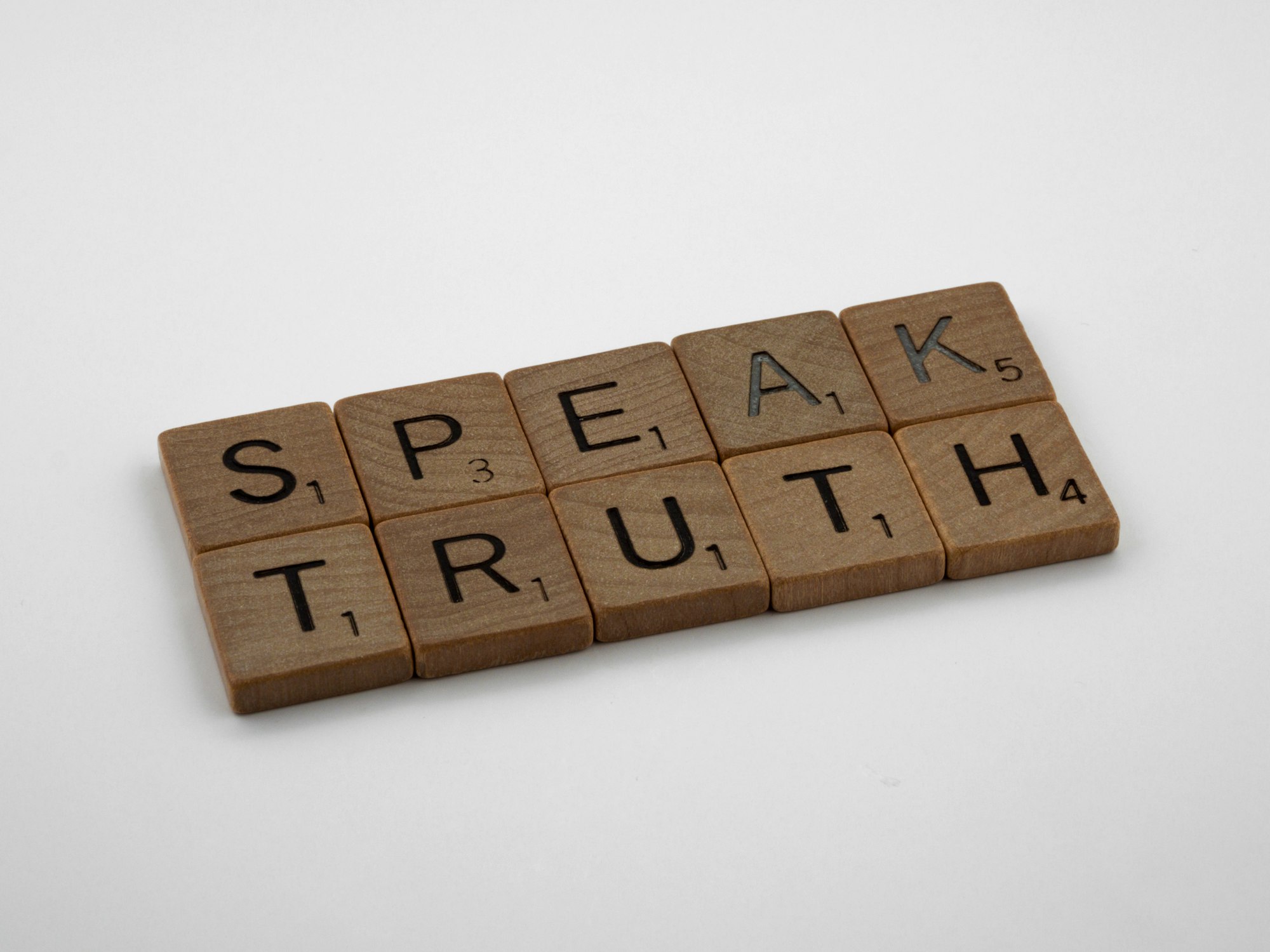What is the current state of culture in organisations around the world?
This might be the reason you're struggling to move things along in your organisation.
That depends on who you ask.
If you ask the leaders of organisations if they think they have a strong, unique, purposeful culture - they'll nod their heads enthusiastically in agreement.
If you pose the same question to everyone else in the company; they'll burst into tears and show you the pre-loaded resignation letter they're intending to sent to their shitty manager as soon as their measly bonus gets paid.
Company culture in organisations around the world is in crisis.
The official term for what's happening is cognitive dissonance.
Officially a company will have all sorts of wonderful plans and visions and values and intentions of how they want to be seen externally and internally, but the lived day-to-day reality of the real culture of that business is far from the nice sentiments that get handed around by HR.
Words and actions need to align.
If words and action don't align - trust is eroded, companies struggle to motivate staff and people leave.
We've seen this misalignment (between words and actions) being prevalent it at even the best companies. We shudder to think what it's like in government departments and state owned enterprises.
In the latest PWC Global Culture Survey they have tried to quantify the levels of cognitive dissonance in global organisations - and the results are startling:

'This year’s survey shows that this chasm between leaders’ and employees’ perceptions persists, extending to almost every element of culture.
This gap creates a huge barrier to realising the benefits of investing in culture.
At the heart of this mismatch is the issue of authenticity; business leaders believe they are a walking embodiment of the organisation’s culture, values and purpose, but their
employees disagree. Closing these gaps in perception and authenticity is essential, because authenticity is correlated with not just good feelings but also measurable business outcomes.'

'One of the starkest gaps between employees and leaders in our survey shows up in questions pertaining to DEI (Diversity, equity and inclusion).
Only 21% of respondents overall say that DEI needs to be improved in their organisation, and there is a huge mismatch between the views of leaders and below management employees. This gap persists across all geographies.
Our data shows that many workers today feel they’re not fully seen or heard and that their workplaces aren’t as
inclusive as leaders think they are. This has consequences.
Some who don’t feel that they can be their authentic selves at work may resort to code-switching—adjusting their behaviour, expressions or speech patterns in order to fit in or because they think they’ll be treated more fairly and given more opportunities as a result. And this risk might be exacerbated further in the future hybrid model of work.
Employees who are uncomfortable are unlikely to stay for long. Unless this issue of workers not feeling included or seen is addressed, and DEI values are genuinely embedded into culture, an organisation will struggle to
retain the talent it needs.
Our analysis confirms that consistency matters, not just in leaders’ talk and actions, but in the behaviours of people across the organisation. We call this cultural coherence. Survey respondents at organisations where there is consistency between what is said about culture and the way people behave fare considerably better in terms of revenue and employee and customer satisfaction.
There is evidence that a lack of cultural consistency in organisations is causing another fundamental problem. Our survey this year shows that employees are losing faith in the power of culture: although the number of C-suite and board members who believe that culture is more important than strategy or operating model has increased, the number of frontline workers who say the same has gone down since our 2018 survey, from 66% then to 46% this year.'
The solution?
Worryingly most companies seem to think of company culture as something that is the responsibility of the HR department.
Now we don't mean to be terribly rude, but I have yet to meet a competent, people-driven, effective HR team. Most HR people struggle to understand the basic tenets of a joke so it's beyond us as to how they are meant to deal empathically with the complexities of 'real people'.
So leaving culture to HR is like asking the janitor to be your next CTO. You might as well just do nothing.
Culture is however (as the research shows) a critical enabler of the success of an organisation.
It needs to be carefully considered, designed, measured, grown over time and allowed to slowly emerge. Your desired culture needs a strategy, trained minders / coaches, constant sense-checking, adjustment and buy-in right the way to the top.
It's one of those intangible business assets that the empirically-minded leaders of most modern organisations really struggle to get their heads around, but is a powerful catalyst to achieving the business aims that are desired.
The opportunity
Right now in organisations around the world - culture is completely undervalued. There is however a massive opportunity for those companies and their competent leaders, that do take it seriously, to radically differentiate themselves as a result.
Just don't please ask HR to be involved in any way.





